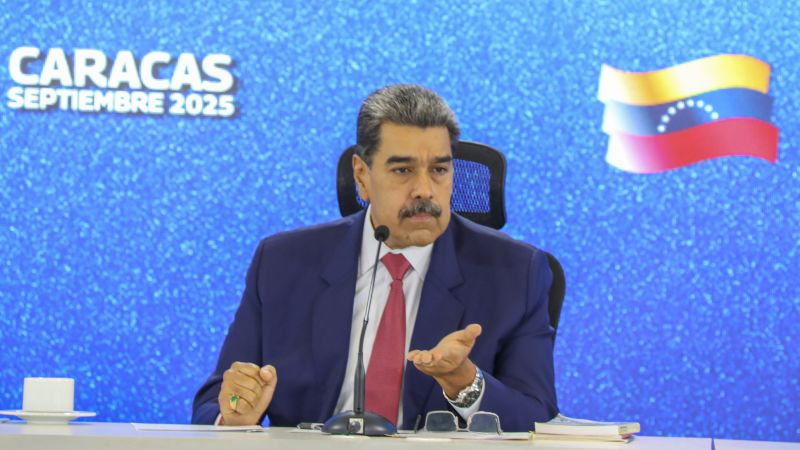UPDATE: Venezuela’s President Nicolás Maduro has just announced that the nation possesses 5,000 Russian-made Igla-S anti-aircraft missiles strategically positioned across the country. This claim comes amid escalating tensions as U.S. President Donald Trump weighs potential military action in Venezuela, a move that could reshape the geopolitical landscape in the Caribbean.
During a military event broadcast on Venezolana de Televisión (VTV), Maduro emphasized the power of the Igla-S missiles, stating, “Any military force in the world knows the power of the Igla-S, and Venezuela has no less than 5,000 of them.” These missiles are capable of targeting small aerial threats, including drones and low-flying aircraft, and can be operated by a single soldier.
The situation intensifies as the U.S. has deployed 4,500 Marines and sailors to the Caribbean, aiming to bolster operations against drug trafficking and demonstrate military readiness. Recent U.S. actions have included lethal strikes on vessels accused of narcotics trafficking along the Caribbean coast, raising legal questions from lawmakers regarding the nature of these military operations.
In a stark warning, Trump mentioned last week that he had authorized the CIA to conduct covert operations in Venezuela, indicating that the U.S. is considering expanding its military involvement. “We are certainly looking at land now,” Trump stated, underlining the seriousness of U.S. intentions as they seek to exert pressure on Maduro’s regime.
Maduro, countering these threats, has been mobilizing troops and claimed to have over 8 million militia members ready to defend the nation. He described the Venezuelan people as “clear, united, and aware,” asserting they have the capability to resist what he termed an “open conspiracy” against their sovereignty.
Experts have raised concerns about the actual number and training quality of these militia forces, while the International Institute for Strategic Studies has noted that while the Igla-S missiles are part of Venezuela’s military assets, Maduro’s claims remain unverified by independent sources.
As tensions escalate, the international community watches closely. The U.S. strategy appears focused on creating a credible military threat to encourage Maduro to resign voluntarily, rather than engaging in direct confrontation.
The ongoing situation poses significant implications for regional stability and could lead to a broader military conflict if diplomatic resolutions are not pursued. Observers are urged to stay informed as developments unfold in this critical geopolitical crisis.






